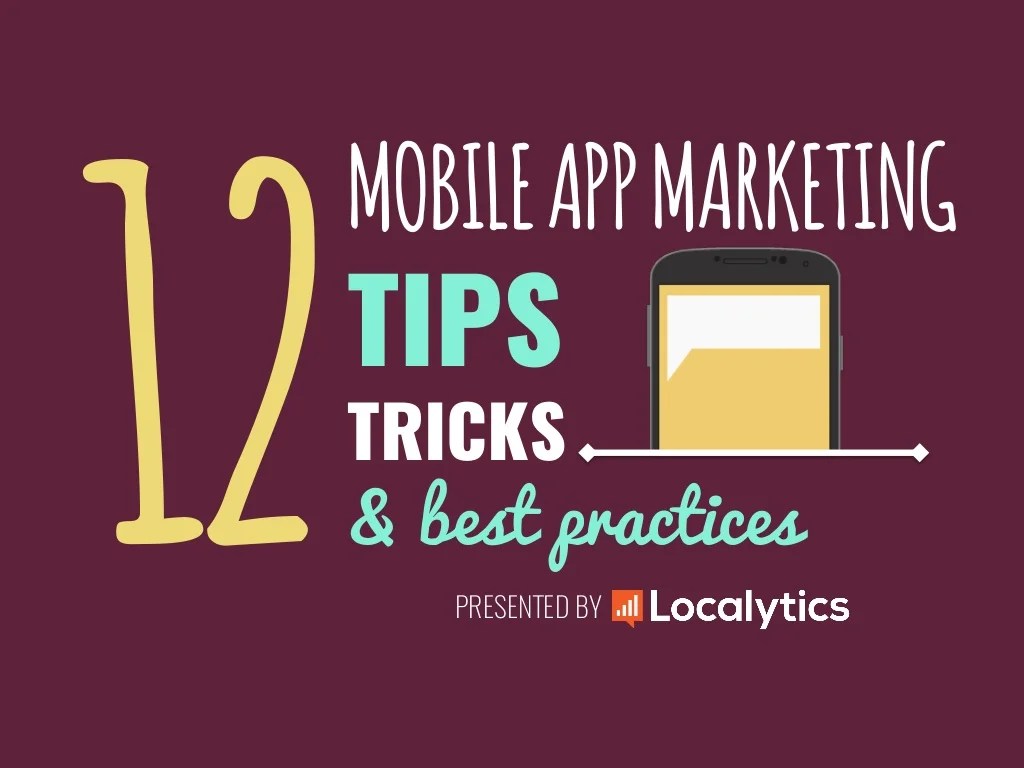Mobile App Marketing Tips takes center stage in the digital realm, offering a wealth of strategies and insights to elevate your app’s visibility and engagement. Dive into the world of mobile app marketing and unlock the secrets to success in this dynamic landscape.
Importance of Mobile App Marketing

In today’s digital world, mobile app marketing plays a crucial role in the success of any app. With millions of apps available in the app stores, it is essential to have a strong marketing strategy to stand out from the competition and attract users.
Key Benefits of Investing in Mobile App Marketing
- Increased Visibility: Effective marketing efforts can increase the visibility of your app in the app stores, making it easier for users to discover and download.
- User Engagement: Marketing strategies can help in engaging with users, encouraging them to use the app regularly and provide valuable feedback.
- Higher Downloads: A well-planned marketing campaign can lead to higher download numbers, ultimately increasing the app’s popularity and success.
Impact of Effective Mobile App Marketing Strategies
“According to a recent study, apps that invest in marketing see an average increase of 30% in downloads compared to those that do not.”
Effective mobile app marketing strategies have been proven to have a significant impact on the success of an app. By utilizing tactics such as ASO (App Store Optimization), social media campaigns, influencer partnerships, and targeted advertising, apps can reach a wider audience and achieve higher user engagement rates.
Strategies for Mobile App Marketing: Mobile App Marketing Tips
In the competitive world of mobile apps, having a solid marketing strategy is crucial for success. Let’s delve into some effective strategies that can help your app stand out in the crowd.
App Store Optimization (ASO)
App Store Optimization is the process of optimizing your app’s listing on the app store to improve visibility and increase downloads. This includes optimizing s, icons, screenshots, and descriptions to attract more users.
Social Media Marketing
Utilizing social media platforms like Facebook, Instagram, and Twitter to promote your app can be highly effective. Engaging with users, running targeted ads, and creating buzz around your app can help drive downloads and increase brand awareness.
Influencer Collaborations, Mobile App Marketing Tips
Partnering with influencers in your app’s niche can help reach a wider audience and build credibility. Influencers can promote your app to their followers, leading to increased downloads and user engagement.
User Engagement and Retention Strategies
Keeping users engaged and retained is key to the success of your app. Implementing push notifications, in-app rewards, personalized recommendations, and feedback mechanisms can help improve user satisfaction and retention rates.
Examples of Successful Mobile App Marketing Campaigns
One notable example is the mobile game “Pokemon GO,” which used a combination of social media marketing, influencer partnerships, and gamification to create a viral sensation. Another successful campaign is the fitness app “Calm,” which utilized ASO techniques, user engagement strategies, and partnerships with wellness influencers to become a top-grossing app.
Key Elements of a Successful Mobile App Marketing Plan
Developing a successful mobile app marketing plan requires careful consideration of various key elements that can help drive user acquisition and retention. Let’s dive into some essential components that should be included in every mobile app marketing strategy.
Market Research, Target Audience Identification, and Competitor Analysis
Market research plays a crucial role in understanding the needs and preferences of your target audience. Identifying your target audience helps in tailoring your marketing efforts to reach the right people. Additionally, conducting competitor analysis allows you to identify gaps in the market and differentiate your app from others.
- Market Research: Utilize tools and resources to gather data on market trends, user behavior, and competitor strategies.
- Target Audience Identification: Define your target audience based on demographics, interests, and behavior patterns.
- Competitor Analysis: Analyze the strengths and weaknesses of your competitors to position your app effectively in the market.
App Store Optimization (ASO) and App Analytics
App Store Optimization (ASO) is crucial for improving the visibility of your app in app stores and driving organic downloads. By optimizing s, visuals, and descriptions, you can enhance your app’s discoverability. App analytics help in tracking user engagement, retention rates, and in-app behavior to make data-driven decisions for optimizing your marketing strategies.
- ASO: Optimize your app’s title, s, screenshots, and ratings to improve its ranking in app store search results.
- App Analytics: Use tools like Firebase, Flurry, or Google Analytics to track user interactions, retention rates, and conversion metrics.
Feedback and User Reviews
Feedback from users and user reviews provide valuable insights into the user experience and satisfaction levels with your app. By actively seeking feedback and responding to user reviews, you can address issues, improve user engagement, and refine your marketing strategies based on user preferences and suggestions.
- Feedback Collection: Encourage users to provide feedback through surveys, in-app prompts, and social media channels.
- User Reviews: Monitor and respond to user reviews on app stores to show users that their feedback is valued and to address any concerns or issues promptly.
Emerging Trends in Mobile App Marketing

In the ever-evolving landscape of mobile app marketing, staying on top of emerging trends is crucial to staying ahead of the competition and reaching your target audience effectively.
AI-driven Marketing
AI-driven marketing has revolutionized the way businesses interact with their customers. By leveraging artificial intelligence, companies can analyze user data to personalize marketing efforts, streamline customer service, and improve overall user experience.
Personalized User Experiences
Personalization is key in today’s mobile app marketing strategies. By tailoring content and recommendations to individual users based on their preferences and behavior, companies can increase user engagement, retention, and ultimately, drive conversions.
Augmented Reality Integration
Augmented reality (AR) has become a game-changer in mobile app marketing, allowing businesses to create interactive and immersive experiences for users. By integrating AR features into their apps, companies can enhance brand engagement, increase customer loyalty, and differentiate themselves from competitors.
Impact of Video Content and Interactive Ads
Video content and interactive ads have become essential components of successful mobile app marketing campaigns. With the rise of short-form video platforms like TikTok and Instagram Reels, businesses can engage users in a more dynamic and visually appealing way, driving brand awareness and conversions.
Social Commerce and Influencer Marketing
The growing importance of social commerce and influencer marketing in the app industry cannot be understated. By partnering with influencers and leveraging social media platforms for e-commerce, businesses can reach a wider audience, build credibility, and drive sales through authentic and targeted promotional efforts.